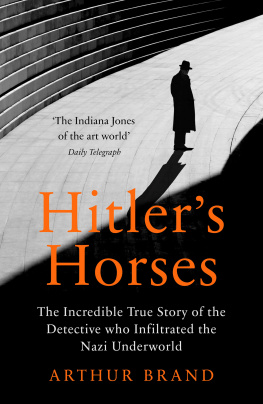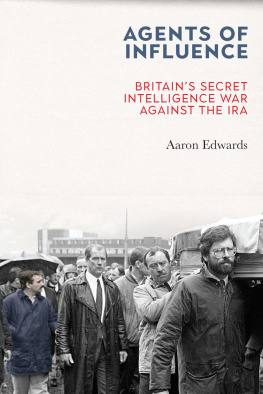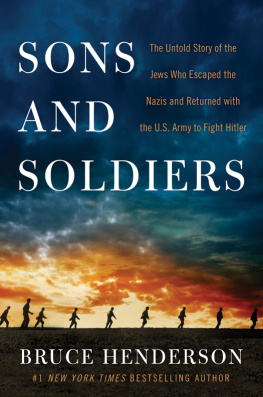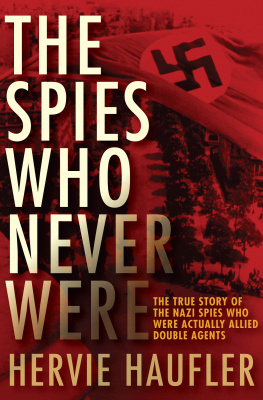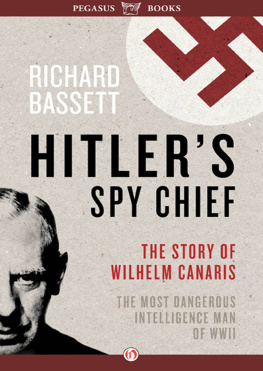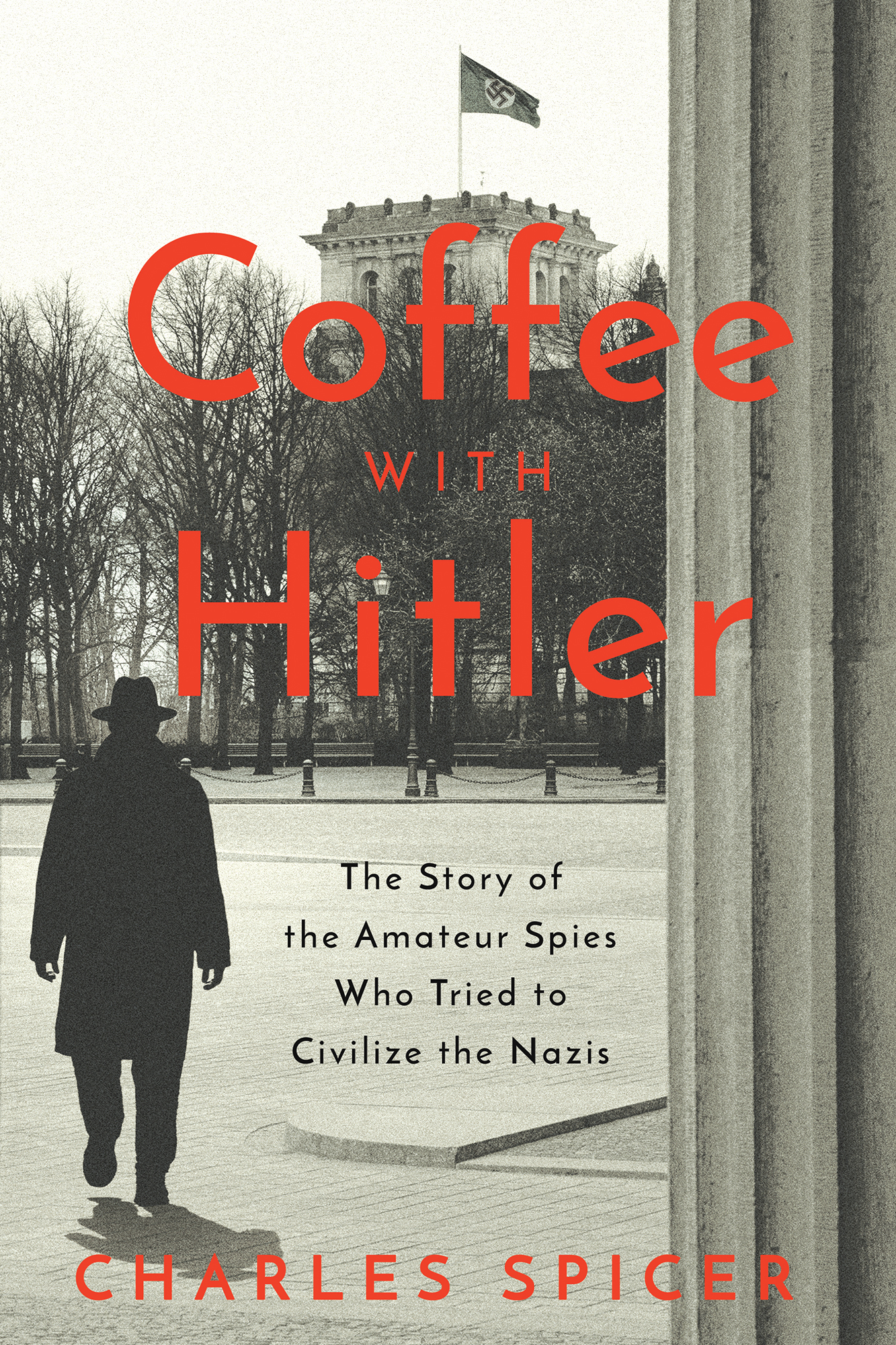Charles Spicer - Coffee With Hitler: The Untold Story of the Amateur Spies Who Tried to Civilize the Nazis
Here you can read online Charles Spicer - Coffee With Hitler: The Untold Story of the Amateur Spies Who Tried to Civilize the Nazis full text of the book (entire story) in english for free. Download pdf and epub, get meaning, cover and reviews about this ebook. City: New York, year: 2022, publisher: Pegasus Books, genre: History. Description of the work, (preface) as well as reviews are available. Best literature library LitArk.com created for fans of good reading and offers a wide selection of genres:
Romance novel
Science fiction
Adventure
Detective
Science
History
Home and family
Prose
Art
Politics
Computer
Non-fiction
Religion
Business
Children
Humor
Choose a favorite category and find really read worthwhile books. Enjoy immersion in the world of imagination, feel the emotions of the characters or learn something new for yourself, make an fascinating discovery.

- Book:Coffee With Hitler: The Untold Story of the Amateur Spies Who Tried to Civilize the Nazis
- Author:
- Publisher:Pegasus Books
- Genre:
- Year:2022
- City:New York
- Rating:4 / 5
- Favourites:Add to favourites
- Your mark:
Coffee With Hitler: The Untold Story of the Amateur Spies Who Tried to Civilize the Nazis: summary, description and annotation
We offer to read an annotation, description, summary or preface (depends on what the author of the book "Coffee With Hitler: The Untold Story of the Amateur Spies Who Tried to Civilize the Nazis" wrote himself). If you haven't found the necessary information about the book — write in the comments, we will try to find it.
How might the British have handled Hitler differently? remains one of historys greatest what ifs.
Coffee with Hitler tells the astounding story of how a handful of amateur British intelligence agents wined, dined, and befriended the leading National Socialists between the wars. With support from royalty, aristocracy, politicians, and businessmen, they hoped to use the recently founded Anglo-German Fellowship as a vehicle to civilize and enlighten the Nazis.
At the heart of the story are a pacifist Welsh historian, a World War I flying ace, and a butterfly-collecting businessman, who together offered the British government better intelligence on the horrifying rise of the Nazis than any other agents. Though they were only minor players in the terrible drama of Europes descent into its second twentieth-century war, these three protagonists operated within the British Establishment. They infiltrated the Nazi high command deeper than any other spies, relaying accurate intelligence to both their government and to its anti-appeasing critics. Straddling the porous border between hard and soft diplomacy, their activities fuelled tensions between the amateur and the professional diplomats in both London and Berlin. Having established a personal rapport with President Franklin D. Roosevelt, they delivered intelligence to him directly, too, paving the way for American military support for Great Britain against the Nazi threat.
The settings for their public efforts ranged from tea parties in Downing Street, banquets at Londons best hotels, and the Coronation of George VI to coffee and cake at Hitlers Bavarian mountain home, champagne galas at the Berlin Olympics, and afternoon receptions at the Nuremberg Rallies. More private encounters between the elites of both powers were nurtured by shooting weekends at English country homes, whisky drinking sessions at German estates, discreet meetings in London apartments, and whispered exchanges in the corridors of embassies and foreign ministries.
Charles Spicer: author's other books
Who wrote Coffee With Hitler: The Untold Story of the Amateur Spies Who Tried to Civilize the Nazis? Find out the surname, the name of the author of the book and a list of all author's works by series.

